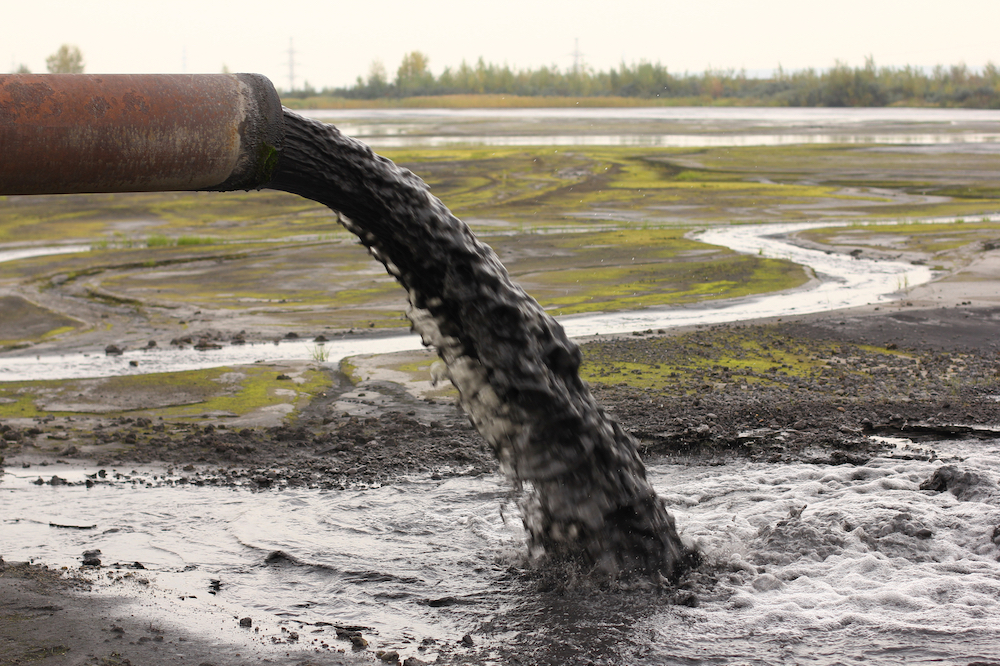Rosenbaum Personal Injury Lawyers | August 12, 2022 | Mass Torts

The U.S. Congress recently enacted the Camp Lejeune Justice Act of 2021, which allows certain individuals to sue to recover damages for contaminated water at the Camp. Importantly, the Act prevents the U.S. government from asserting specific immunity in response to lawsuits filed under its terms.
Read on to learn more about Camp Lejeune, the water contamination that led Congress to pass this Act, and the requirements you must meet to file a lawsuit.
A Brief Overview of Camp Lejeune and its Water Contamination
Marine Corps Base Camp Lejeune is a military training facility located in Jacksonville, North Carolina. It covers approximately 246 square miles, including 14 miles of beaches. Its location and land mass make it particularly suitable for amphibious training and other associated training activities.
In 1982, it was discovered that there were certain volatile organic compounds (VOCs) in the drinking water at Camp Lejeune. This contamination began in the 1950s, and the most-contaminated wells were shut down in 1985. These compounds are known to cause several debilitating diseases.
The Agency for Toxic Substances and Disease Registry (ATSDR) has worked to assess the health risks associated with this contaminated water and notes that as many as one million people might have been exposed.
Requirements To Sue Under the Camp Lejeune Justice Act
President Biden signed the Camp Lejeune Justice Act of 2021 into law on August 10, 2022. The Act allows certain individuals to file lawsuits against the United States government due to harm caused by the contaminated water.
The requirements to file a lawsuit include:
- You must have lived or worked at Camp Lejeune for at least 30 cumulative days between August 1, 1953, and December 31, 1987
- You must have one of the following diseases (this list may be amended as further research is done on the possible effects of contamination):
- Acute Myeloid Leukemia (AML)
- Bladder cancer.
- Brain cancer
- Breast cancer.
- Central Nervous System cancer (CNS).
- Cervical cancer.
- Esophageal cancer.
- Hodgkins Lymphoma.
- Kidney cancer.
- Leukemia.
- Liver cancer
- Lung cancer.
- Myelodysplastic syndrome.
- Multiple myeloma.
- Non-Hodgkins Lymphoma.
- Ovarian cancer.
- Prostate cancer.
- Rectal cancer.
- Other Serious Diseases
- Cardiac defect.
- Epilepsy.
- Fatty liver disease (hepatic steatosis).
- Female Infertility.
- Kidney damage.
- Immune disorders.
- Nerve damage.
- Miscarriage.
- Myelodysplastic syndromes.
- Neurobehavioral effects.
- Parkinson’s disease.
- Renal toxicity/disease.
- Scleroderma.
- You must first file a claim under the Federal Tort Claims Act (FTCA) with the Department of the Navy. If that claim is denied or if six months pass without a decision, you can file a lawsuit in the federal court for the Eastern District of North Carolina.
Keep in mind that you can still pursue compensation even if you have already received some benefits from the Veteran’s Administration.
What Damages Could I Receive From a Camp Lejeune Water Contamination Lawsuit?
You can pursue economic and non-economic damages arising from the consumption of or exposure to the contaminated water at Camp Lejeune.
Economic damages represent your financial losses, such as any medical bills, out-of-pocket expenses, and decreased earning capacity.
Non-economic damages compensate you for things like your pain and suffering, emotional distress, and decreased enjoyment of life.
Punitive damages are not available in Camp Lejeune water contamination lawsuits.
How Much Time Do I Have To File My Camp Lejeune Water Contamination Lawsuit?
You will generally have two years from the Act’s enactment date, August 10, 2022, or 180 days after your FTCA claim is denied, whichever comes later.
However, the text of the Act is potentially contradictory regarding this deadline. To be safe, it is recommended to file your FTCA claim (which is required before you can file a lawsuit) within 18 months of August 10, 2022.
Contact Our Personal Injury Law Firm in New York City for Legal Assistance
Victims of water contamination at Camp Lejeune now have an avenue through which to pursue adequate compensation with the passing of this Act. But filing a lawsuit against the United States government is rarely simple, and hiring an attorney to represent you is recommended.
If you have any questions about your Camp Lejuene Water Contamination Lawsuit, your FTCA claim, or if you’ve been injured in an accident in Manhattan, NY, and need legal help, contact our New York City personal injury lawyers at Rosenbaum Personal Injury Lawyers today for legal advice and assistance and schedule a free consultation.
Contact the New York City Mass Torts Law Firm of Rosenbaum Personal Injury Lawyers for Help Today
If you’ve been injured in an accident in Manhattan, NY, and need legal help, contact our mass torts lawyers at Rosenbaum Personal Injury Lawyers to schedule a free consultation. We also serve in Brooklyn and the Bronx.
Rosenbaum Personal Injury Lawyers – New York City Office
100 Wall St, 24th Floor
New York, NY 10005
(212) 514-5007
Our firm is located near you. We have an office in NYC
Find us with our GeoCoordinates: 40.7051415,-74.0067386
Rosenbaum Personal Injury Lawyers – Bronx Office
1578 Williamsbridge Rd suite 3b
Bronx, NY 10461
(929) 447-2347
Our firm is located near you. We have an office in the Bronx
Find us with our GeoCoordinates: 40.8468944,-73.8483118
Rosenbaum Personal Injury Lawyers – Brooklyn Office
32 Court St #704
Brooklyn, NY 11201
(718) 550-3601
Our firm is located near you. We have an office in Brooklyn
Find us with our GeoCoordinates: 40.692948,-73.991038
